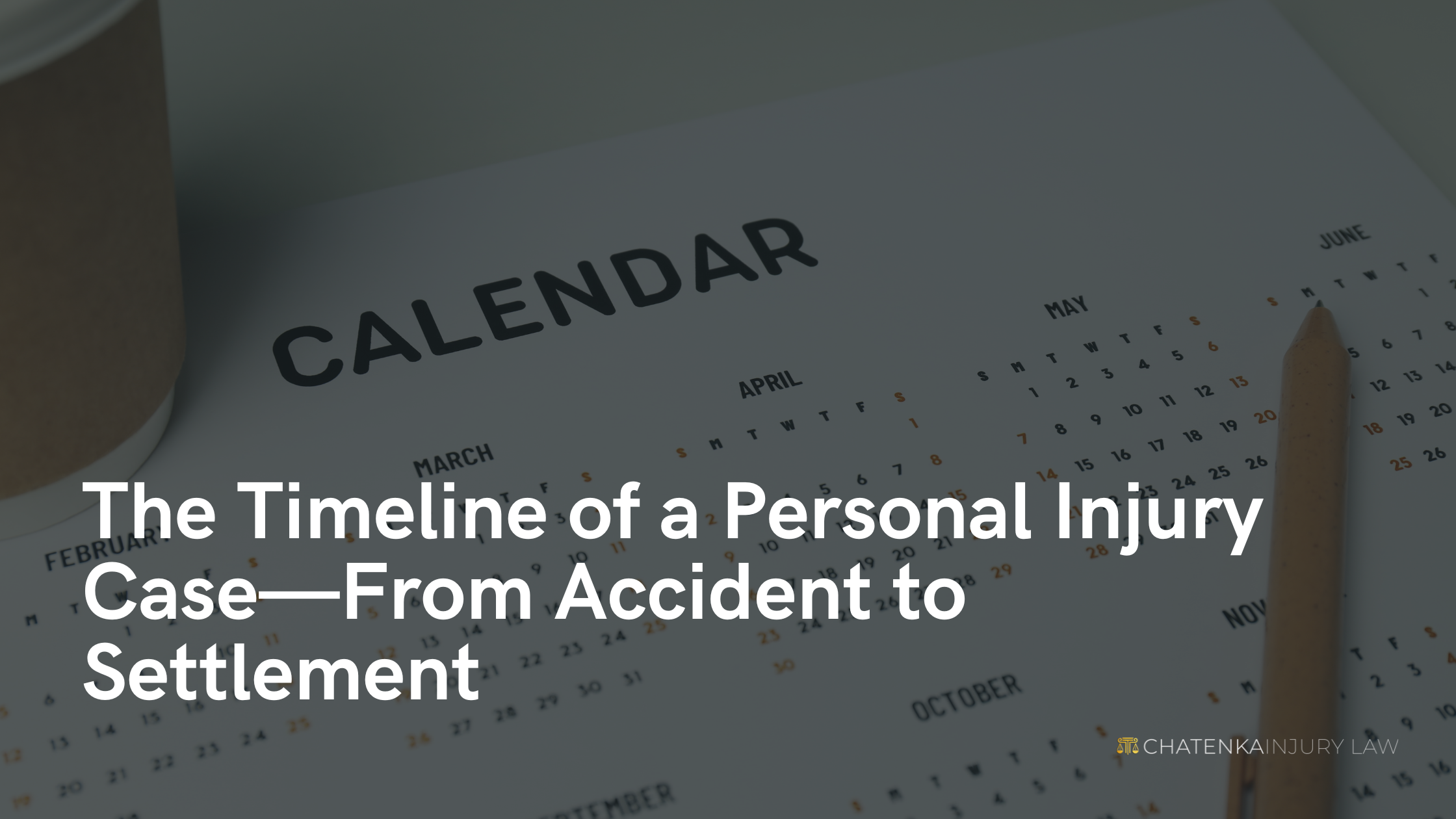The Timeline of a Personal Injury Case—From Accident to Settlement
One of the first questions I get from new clients is:
“How long is this going to take?”
And the honest answer is: it depends.
No two personal injury cases are exactly the same—but what I can do is walk you through the typical timeline, step by step, so you know what to expect.
Whether you’re dealing with a car crash, a slip and fall, or any other serious injury, here’s how your case usually unfolds in Florida.
Step 1: The Accident Happens
This is the moment everything changes. Whether it’s a car wreck or a fall at a business, the first priority is always your health and safety.
Right after the accident, be sure to:
Call the police
Seek medical treatment immediately (within 14 days in Florida to preserve your PIP benefits)
Take photos and gather witness information, if possible
Contact an attorney early to protect your rights
Step 2: Medical Treatment and Recovery (Weeks to Months)
This is one of the longest stages in your case. You’ll see doctors, maybe specialists, and possibly undergo physical therapy or imaging (like MRIs).
We don’t typically file a claim until your treatment is either complete or we have a clear picture of your long-term prognosis. Why? Because we want to know the full extent of your damages before we negotiate a settlement.
Step 3: Case Investigation (Concurrent with Treatment)
While you focus on healing, I’ll start gathering evidence:
Police and crash reports
Photos and surveillance footage
Witness statements
Medical records and bills
Insurance policy information
Proof of lost wages or missed work
This information helps build your demand package and strengthens your claim from the start.
Step 4: Demand Letter & Negotiations (Usually Around 3–6 Months In)
Once we have your records and you’ve completed most of your treatment, I’ll send a demand letter to the at-fault party’s insurance company. This outlines your:
Injuries
Medical expenses
Lost income
Pain and suffering
Any future care needs
Negotiations typically begin here. Sometimes we settle quickly. Other times, the insurance company plays hardball and we have to push back.
Step 5: Settlement or Filing a Lawsuit
Most personal injury cases settle without going to trial. But if the offer is unfair—or if they deny responsibility—we can file a lawsuit and move into litigation.
Just filing a lawsuit doesn’t mean you’ll end up in court. Many cases settle before trial once the other side sees you’re serious.
Step 6: Litigation & Discovery (If Necessary)
If we do file suit, we’ll enter a phase called discovery, where both sides exchange information. This can include:
Interrogatories (written questions)
Depositions (sworn statements)
Independent medical exams
Expert witnesses
This phase can take several months, depending on the complexity of your case.
Step 7: Mediation, Settlement, or Trial
Most lawsuits are resolved through mediation—a formal negotiation with a neutral third party. If we can’t agree on a fair settlement, the case may go to trial.
Trials can take one or more days, and results can vary. But whether we’re in a courtroom or a conference room, I’ll fight for the best possible outcome for you.
Step 8: You Get Paid
Once we settle or win your case, there’s a short waiting period (often 2–6 weeks) while the funds are processed. Then we’ll handle:
Paying any outstanding medical bills or liens
Taking our agreed-upon fee
Cutting you a check for your portion
And just like that, your case is closed—and you can move forward.
Final Thoughts
A personal injury case isn’t a quick process—but it’s worth doing right. When you’re injured, you deserve time to heal, space to recover, and a lawyer who keeps things moving behind the scenes.
If you’ve been hurt and want to understand your options, call Chatenka Injury Law for a free consultation.
I’ll walk you through what your timeline might look like—and I’ll be there with you every step of the way.


